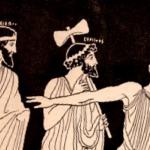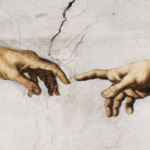 The ‘no-place,’ Utopia, of Thomas More is not and cannot be, but wishing so can fade into trying to make it so. The results are at best comically futile and at worst a motive for mass murder. One reason everyone should be conservative in our ambitions is the failure of Utopian schemes.
The ‘no-place,’ Utopia, of Thomas More is not and cannot be, but wishing so can fade into trying to make it so. The results are at best comically futile and at worst a motive for mass murder. One reason everyone should be conservative in our ambitions is the failure of Utopian schemes.
We should seek justice, but as Mandeville suggests, not perfection. We must not, because those seeking perfection (us!) are not perfect. Like the citizens of Rapture in Bioshock, we end up carving everyone else and then ourselves up in our quest for the Utopian state.
In his classic at the moment of publication The Demon in Democracy; the Totalitarian Temptation in Free Societies, Polish philosopher and politician Ryszard Legutko describes the commonality he sees between the former communist regimes (which he opposed) and a degenerate form of liberal democracy. Free societies are much better, but both share more errors than Polish dissidents and Western patriots wish to believe. They share an assumption that history is heading in their direction and so anyone who opposes them is (almost) unworthy of serious opposition.
Critics of the present order are not even wrong, speaking dark age gibberish. This lazy assumption is dangerous (a temptation) to the very order Legutko prefers: liberal democracy. He is not arguing for any other regime, but against the errors that liberal democracy shares with socialism.
The Utopian temptation comes when history brings us liberal democracy and any particular social or political movements in that democracy (sanctioned by the elite) are made to be moral. To oppose the spirit of the liberal democratic age is to oppose the ethical regime. In this sense, the liberal democracy can fall into the trap of the theocracy: the voice of the liberal democratic consensus, as expressed by the university class, is the voice of God: the God humankind has created.
Legutko challenges that freedom is found exclusively in either socialism or liberal democracy. Socialism has killed her millions in the last century and few who experienced the dullard rule of the mass murderers, simultaneously satanic and stultifying, would wish to go back. Liberal democracy is better, but not the only source of freedom. Legutko dissents:
The portrayal of liberal democracy as a realization of the eternal desire for freedom is very popular, almost verging on a platitude, especially in recent decades. This picture is false. First, liberalism was certainly not the only orientation expressing the desire for freedom, nor was it particularly consistent in this devotion. The supporters of republicanism, conservatism, romanticism, Christianity, and many other movements also demanded freedom, and did a lot to advance its cause. If freedom as we understand it in Western civilization is not only an abstract value, but has a concrete shape well-grounded in institutions, social practices, and mental habits, then the contribution of liberalism is one of many, far from decisive. It is hard to imagine freedom without classical philosophy and the heritage of antiquity, without Christianity and scholasticism, without different traditions in the philosophy of law and political and social practices, without ancient and modern republicanism, without strong anthropology and ethics of virtues and duties, without Anglo-Saxon and continental conservatism or many other components of the entire Western civilization.
And liberals share guilt in Soviet and socialist tyranny:
In the twentieth century they engaged in a long-term flirtation with socialism, including its Soviet version, being probably motivated by a similar assumption. Even the most liberal of liberals displayed extraordinary softness against the Soviet Union and the Soviet communism and sometimes even actively supported the idea of unilateral disarmament of the West, as did libertarians—all in the name of freedom.
There has been no accounting for those who justified mass murderers or explained away their repression: one is now running for President of the United States, never having apologized for being a dupe of one of the worst regimes in human history. Chinese gulags, brutal labor camps, are explained away given “free education and health care.”
Liberal democrats have been unsteady friends of liberal democracy.
Legutko challenges my own tendency to dismiss the Utopians, because he has seen how hard they will try. The crisis (whatever it might be: class, atom bombs, ecology) demands their solution now. The solution will be hard, may be nearly unachievable, will require you sacrifice immeasurably but:
Utopia is—I beg the reader’s pardon for such a vile-sounding phrase—the final solution. Following its implementation, injustice, poverty, tyranny, and other political sins will disappear once and for all. Their disappearance will be structural and not depend on contingent factors.
The millions dead globally, who are still dying, in socialist regimes are not abstract debating points to win a fight on Twitter. They are the cost of hard headed, practical men, convinced that the sacrifice of our way of life, even our life, is necessary to bring on the greater Good. CS Lewis describes this in That Hideous Strength as liberal democracy being tempted to bring back the idea that men can create God.
Socialism failed and will fail every time it is tried, but the Utopian elements in it make it appealing every time. Liberal democracy might be tempted to think it is the Utopian answer: if only the government got out the way, if conservative institutions like the Church were crushed, then we could all eat, drink, and perform biological functions merrily until we died, unless science solved death. Imagine a libertarian and a libertine: the one gives full economic freedom, the other social freedom. Fuse the two and this is the Utopia that works.
This message has not fully worked: as the rise of democratically elected dissidents from the the Utopian dream have been elected in states like Hungary and Poland demonstrates. In the United States the liberal democratic Utopia faces a revived socialism that has fused with libertine personal freedoms. The state will own the means of production, but the individual will own the means of human production.
Legutko misses this new fusion. The Utopia capturing most young voters is not Rand, but @AOC: a novel defeated by a Tweet. He does see and gut the veneration of democracy, so superior to any other form of government that only more democracy can cure any flaws in democracy. This is insane logic, but conventional wisdom.
Read the book.
—————————-
This is a five part series on this fascinating text: 1. 2.












